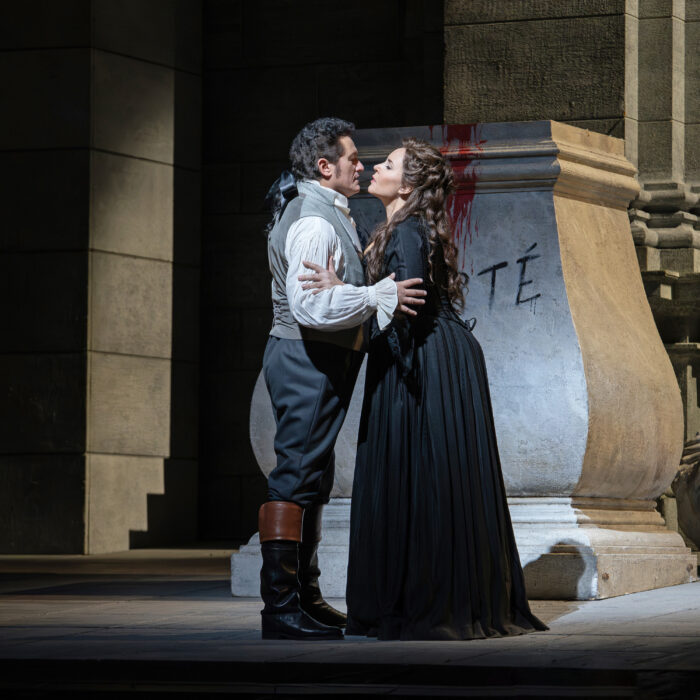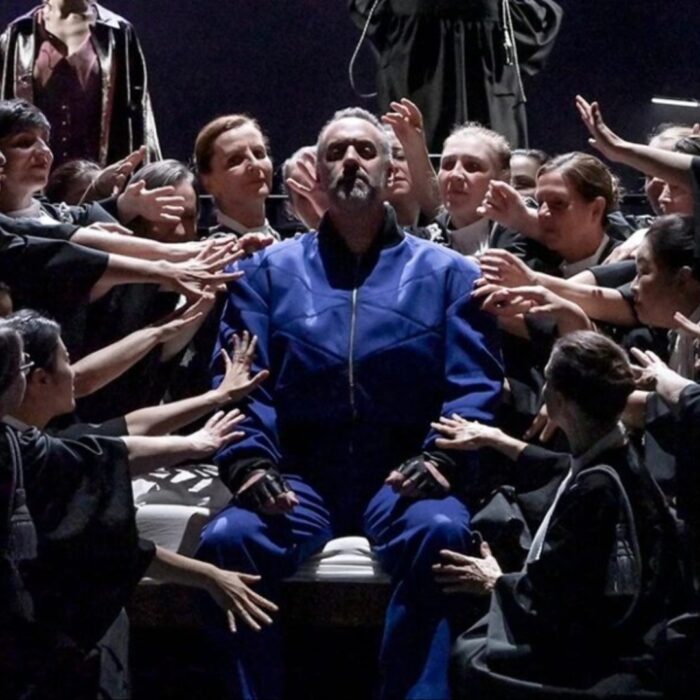
Juilliard 2018-19 Review: The Turn of the Screw
By Jennifer PyronThe Juilliard School’s 2018-19 season opener was impactful on multiple levels, creating a lasting impression.
Juilliard has always been renowned for its high quality performers. But on this evening, there was something quite surprising in the air, the entire experience on a completely different plane of quality.
Hanging Onto Every Word
The first highlight was The Prologue, performed by Chance Jonas-O’Toole. He sang with precision and emotional depth that set the tone for the entire performance. The matter-of-fact style of the recitative was given a fresh perspective through Jonas-O’Toole’s connection to breath and meaning behind each phrase.
Britten’s piano music in this scene was played by Christopher Staknys, who created an ethereal and transformative experience. Staknys drew energy to the storyline in The Prologue and created a blanket of Britten’s lush arpeggios and tender pianissimos that fueled Jonas-O’Toole’s performance. It could be said that the audience was hanging on to every phrase as Jonas-O’Toole described the haunting details of The Governess and her journey to Bly.
Troubled & Mysterious
Harrison Honor’s timpani performance illustrated the journey of Anneliese Klenetsky, as The Governess, on her coach ride to Bly, where Britt Hewitt, as Miles, and Joan Hofmeyr, as Flora, greeted her with happy, childlike gestures and an overall reassuring welcome.
Immediately, Hewitt caught the attention of the audience with her poignant voice that characterized Miles as a deeply troubled and mysterious child. Hewitt was brilliant with her characterization that lead the entire cast down the dark rabbit hole of Miles’ psyche. Hofmeyr followed suit as the playful and mischievous sister, when she poked fun at the shadows of evil while she sang in a taunting manner; effortlessly switching her tone to bring hope to The Governess when a situation became too heavy, highlighting Hofmeyr’s delicate portrayal of Flora. It was her honesty and genuine connection to character that most captivated the audience.
Katerina Burton, as Mrs. Grose, played the housekeeper who did her best to keep the peace. Burton’s voice was rich and warm as her role showcased a “hear no evil, see no evil” perspective – only on occasion did she allude to her worst nightmares being a reality.
Carrying The Drama
Klenetsky carried the weight of the dramatic story-line, while remaining vocally flexible and emotive. Her distinct canvas of vocal colors painted each scene and her pure tone characterized The Governess as impossibly guilty for any wrongdoings. This tedious role proved a walk-in-the-park for Klenetsky, as she held steadfast to her character’s determination and internal strength in order to see through her greatest fears, which were sparked by a relentless evil – bringing to light even the worst imaginable ending to it all.
The night would not have been the same without Charles Sy and his notable portrayal of Peter Quint. Sy’s energy, voice and persona cast a wide net of dark force, while his voice floated passionately overall – elevating Sy to the next level as both artist and musician. His vocal swells griped listeners and noticeably hypnotized Miles, his faithful child.
Miss Jessel, played by Rebecca Pedersen, was also under Quint’s spell and despite her suffering both on Earth and in the after-life, she kept close by his side and held on tight to the secrets that they shared surrounding the children. Pedersen was solid in her role and she followed the lead that Sy gave her especially when they sang together about past occurrences and a plot to destroy and posses the children. Her voice expressed a great amount of complexity and fortitude.
Unpackaging Emotion
Britten’s music for this opera is particularly haunting and unique in every way, most specifically based on important recurring themes. The 13-member orchestra, led by Steven Osgood, did a superb job navigating the thematic inner-workings of Britten’s “The Turn of the Screw” showing cognizance of every phrase and how they expressed each theme in the form of an emotion. Specifically, the celesta played by Staknys carried the most unsettling theme of all: Quint’s presence. Staknys played with precision and expressiveness that made the theme impactful and nostalgic.
Scenic Designer Alexis Distler transformed Juilliard’s stage into a labyrinth of uncanniness and the most spectacular moment was when the stage was lifted in two areas, making it look as though the wooden floors were peeling back and lifting into the ceiling. The wallpaper was appropriately fixed in a tattered pattern, that would eventually be ripped off to expose the writings of Miles’ most haunting word: “malo.”
Nothing on stage was left out of sync with the mysterious and chilling terrors that Henry James described in “The Turn of the Screw.” Juilliard’s overall production was incredibly powerful and transformative – one to remember and cherish long afterwards.


